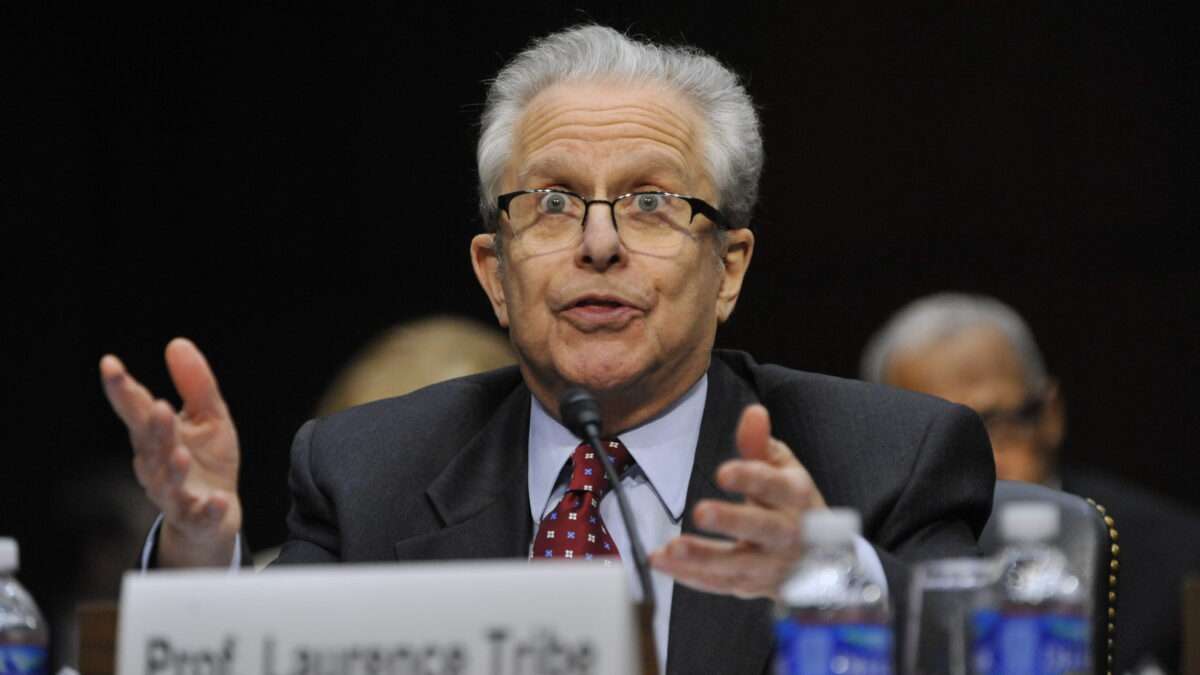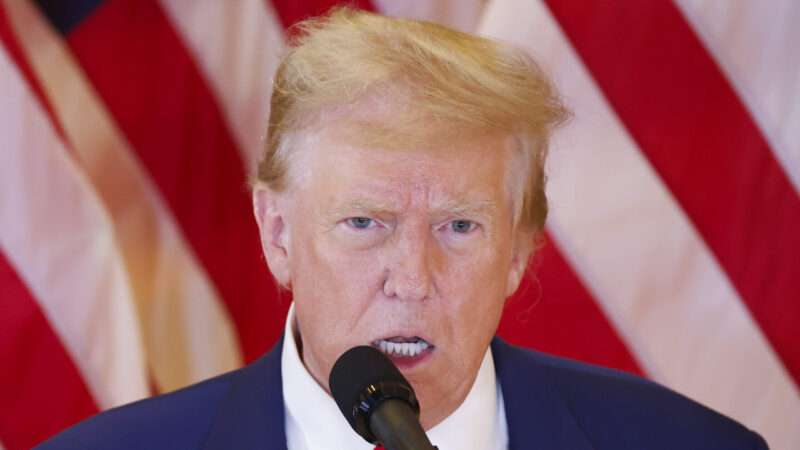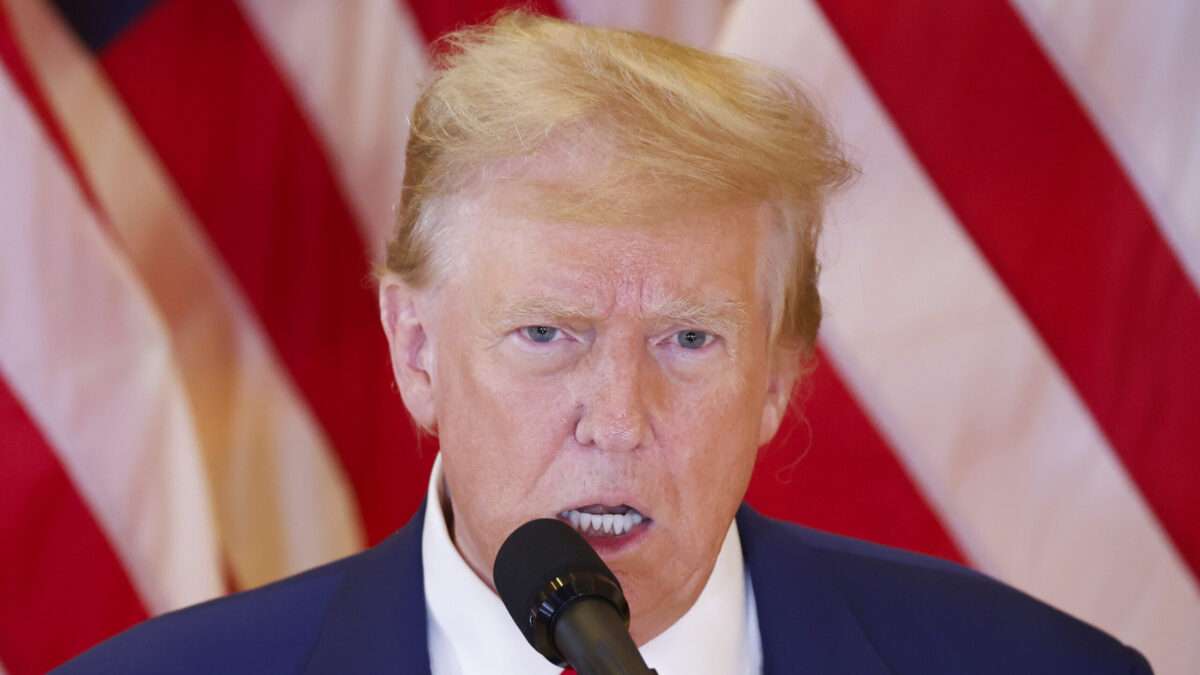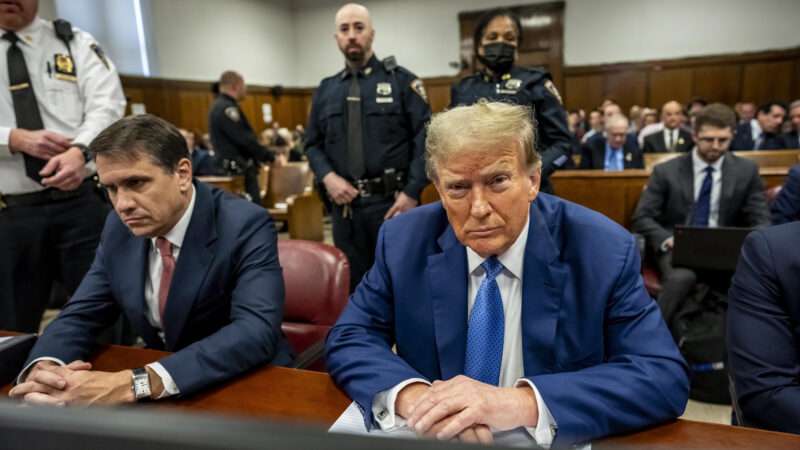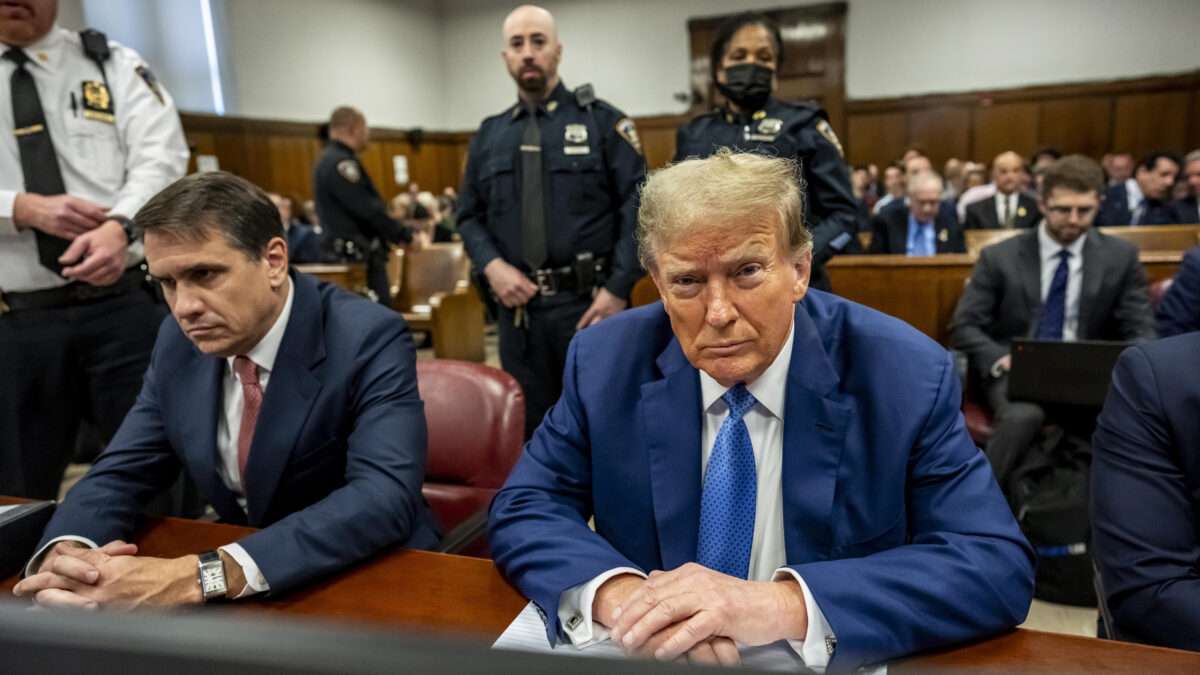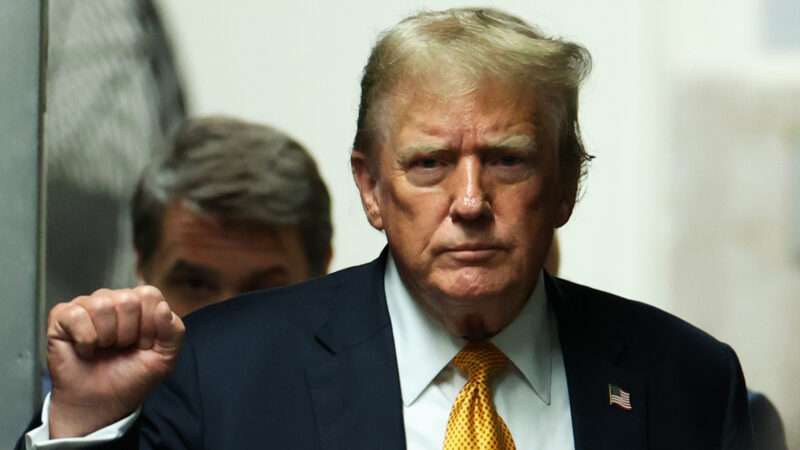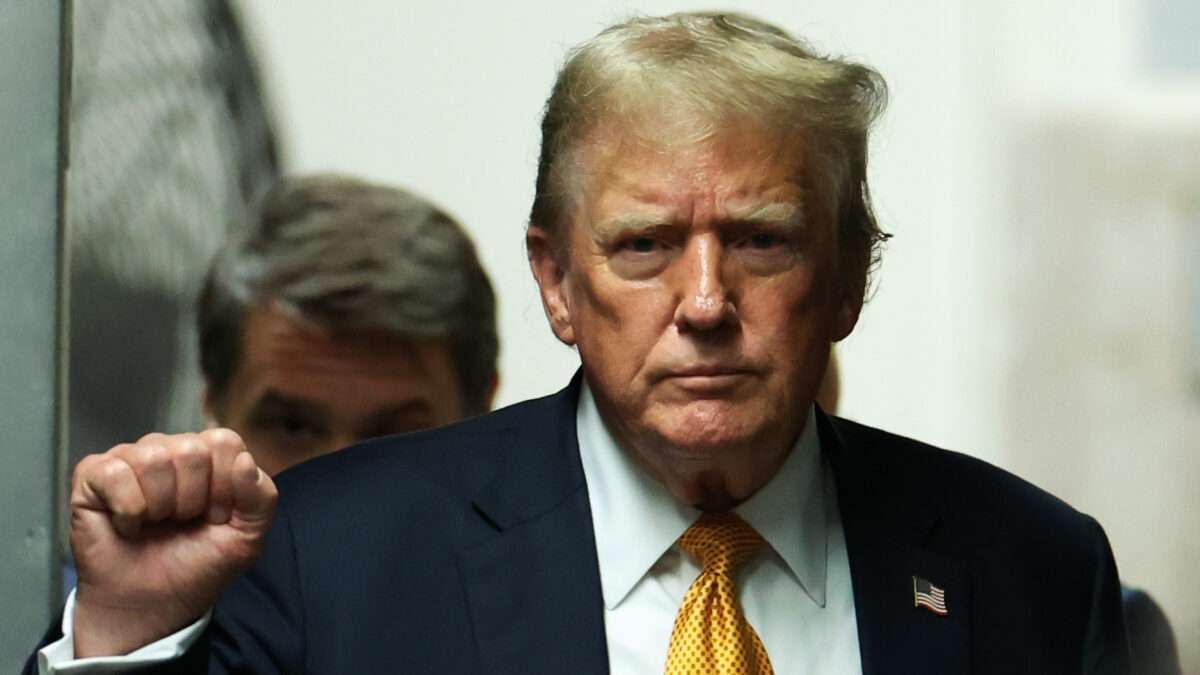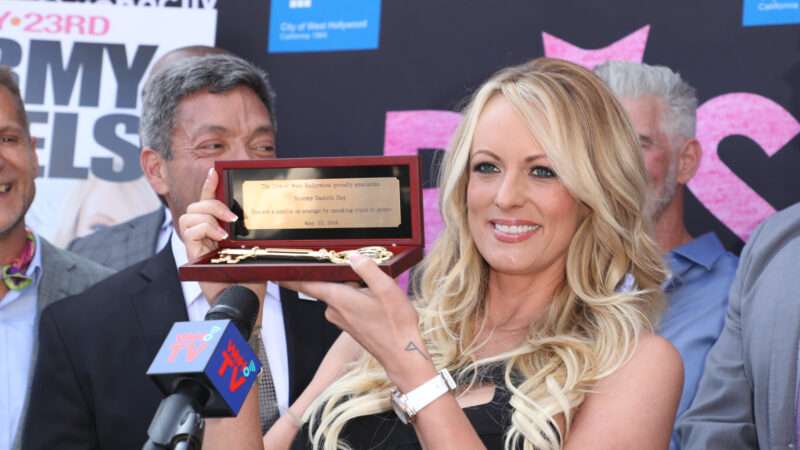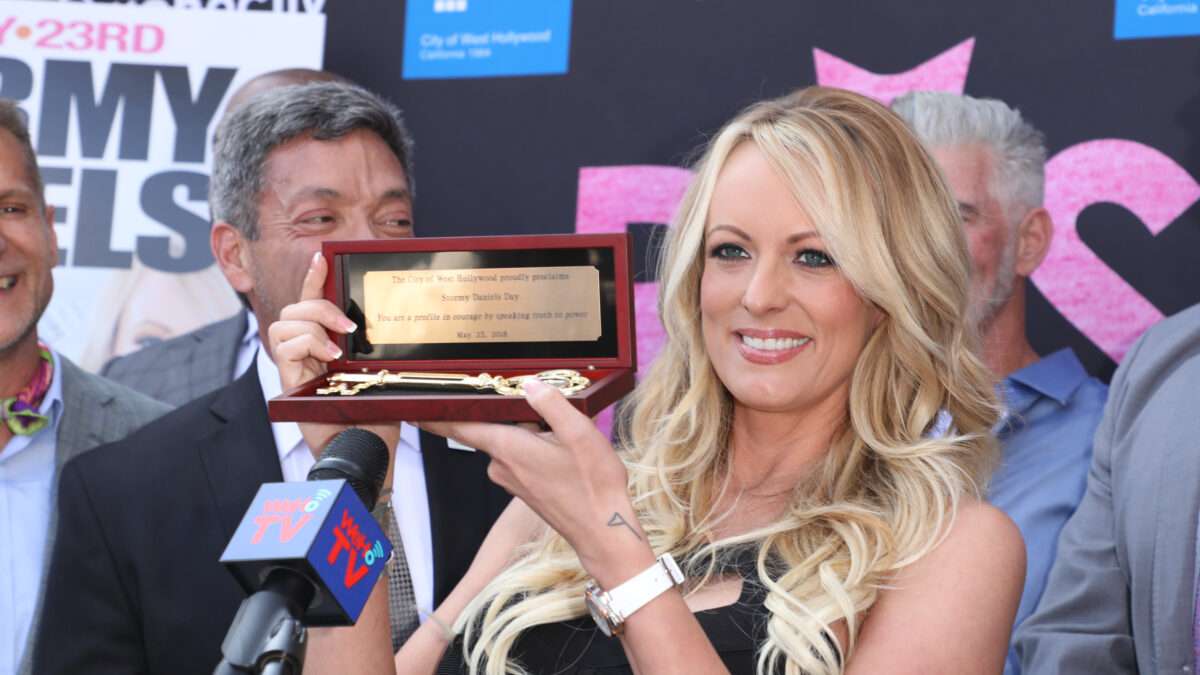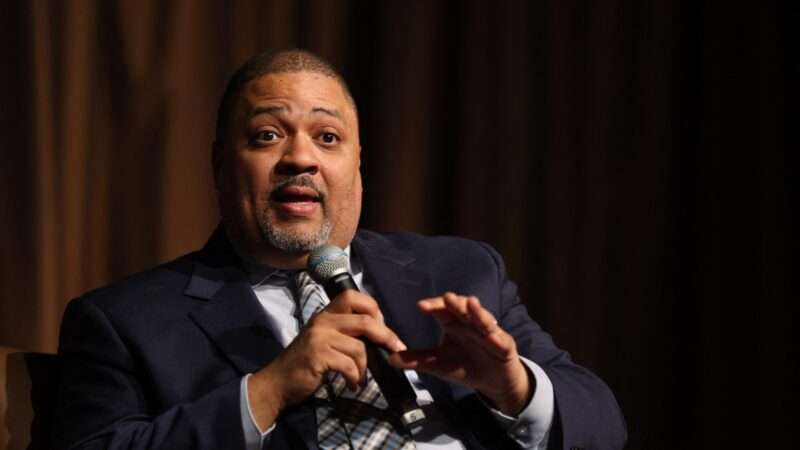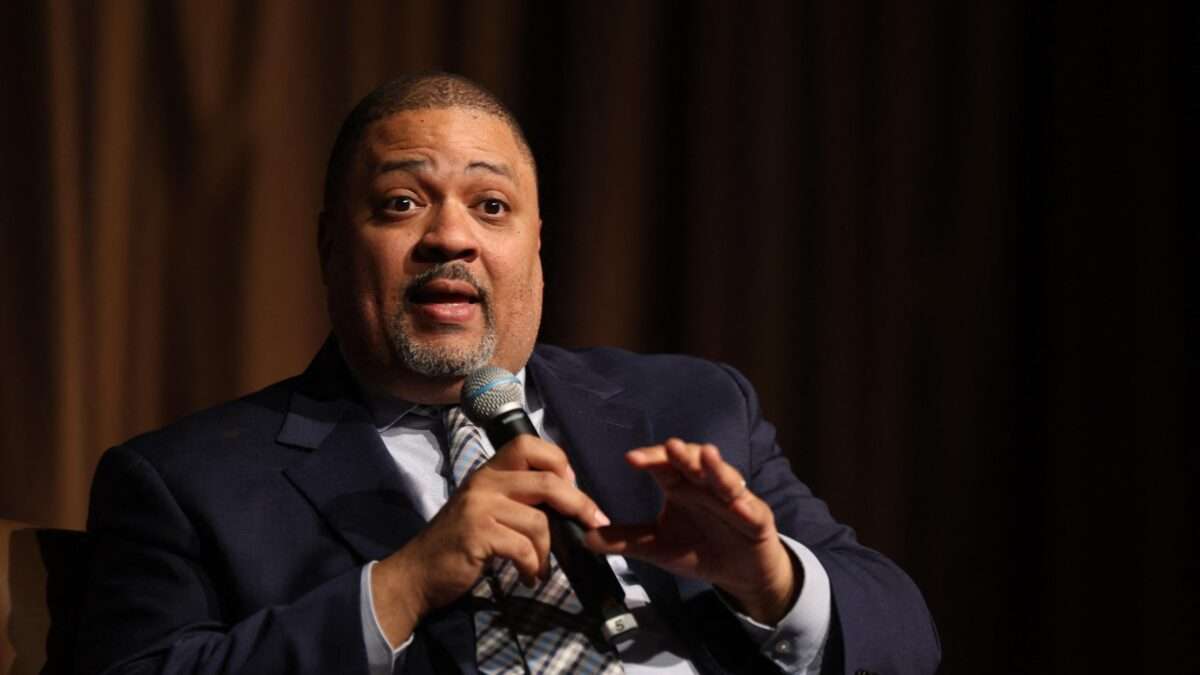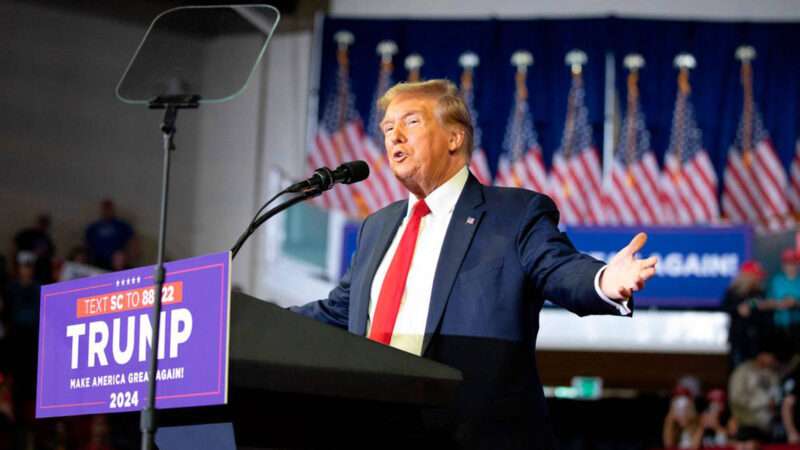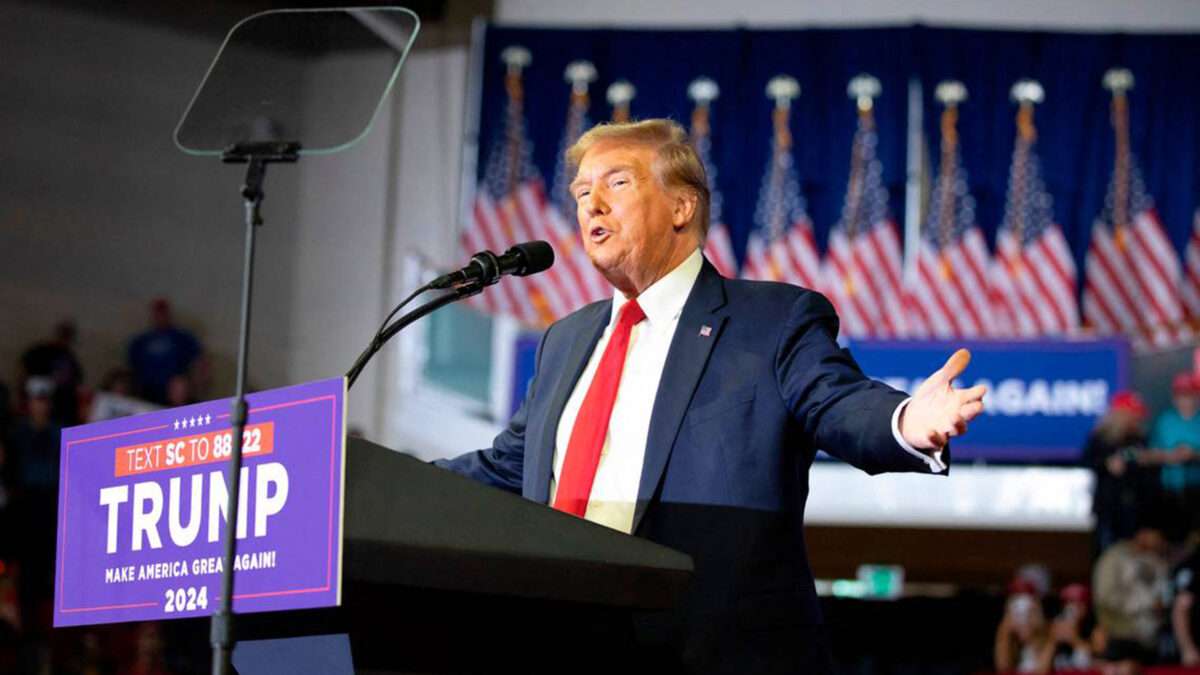Laurence Tribe Bizarrely Claims Trump Won the 2016 Election by Falsifying Business Records in 2017
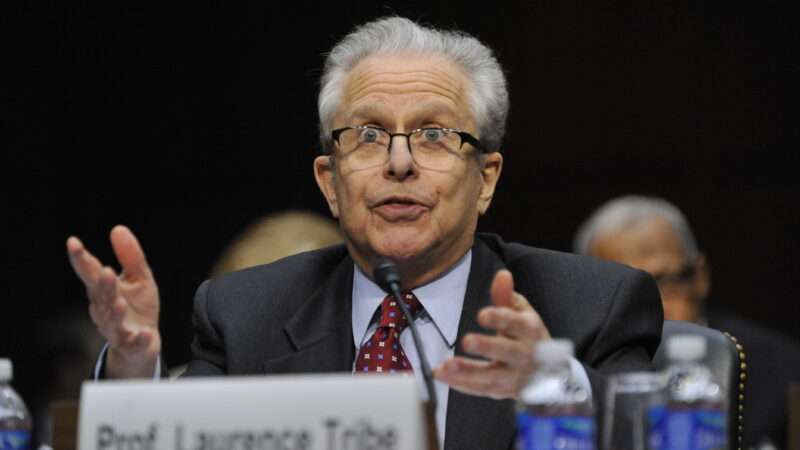
"In 2016," Harvard law professor Laurence Tribe writes, quoting Democracy Docket's Marc Elias, "Donald Trump seemed to pull an inside straight by narrowly winning" Michigan, Pennsylvania, and Wisconsin "while losing the popular vote by 3 million. We now know Trump committed 34 felonies to win that election. Without these crimes, he seems almost certain to have lost to Hillary Clinton. She would have been sworn in on Jan. 20, 2017. She would have filled two Supreme Court vacancies and enacted her legislative agenda."*
Since those 34 felonies involved falsified business records that were produced in 2017, that claim is logically impossible. Yet this gloss on the former president's New York conviction echoes similarly puzzling claims by many smart and ostensibly well-informed observers. In their eagerness to embrace the prosecution's dubious "election fraud" narrative, they nonsensically assert that Trump retroactively ensured his 2016 victory by disguising a 2017 hush-money reimbursement as payment for legal services.
Shortly before the 2016 presidential election, Michael Cohen, then Trump's lawyer, paid porn star Stormy Daniels $130,000 to keep her from telling her story about sex with Trump at a Lake Tahoe hotel during a celebrity golf tournament in July 2006. When Trump paid Cohen back in 2017, prosecutors said, he caused the falsification of business records to cover up the arrangement with Daniels by misrepresenting the reimbursement as compensation for legal work. However you view that misrepresentation, it obviously had no impact on the outcome of the election. Yet Tribe, Elias, and other people bizarrely insist that it did.
"Two years shy of this country's 250th birthday," Rice University historian Douglas Brinkley said on CBS last Sunday, "12 New York jurors have convicted former president Donald Trump on 34 counts of falsifying business records in an attempt to influence the outcome of the 2016 presidential election." The dates of those records—11 invoices, 11 checks, and 12 ledger entries—ranged from February 14, 2017, to December 5, 2017. All of them were created after Trump was elected. You might expect that a historian would pay attention to chronological consistency.
You might expect the same from editorialists at major newspapers. Yet according to a May 30 Washington Post editorial, the jury found Trump "guilty of felony falsification of business records in order to influence the 2016 election." A New York Times editorial published the same day likewise claimed the jury found Trump "guilty of falsifying business records to prevent voters from learning about a sexual encounter that he believed would have been politically damaging." Barring time travel, of course, nothing Trump did in 2017 could have "influence[d] the 2016 election" or "prevent[ed] voters from learning about" that "sexual encounter" before they cast their ballots.
The same temporal difficulty is apparent in news coverage of Trump's trial. "Prosecutors will attempt to make the case that Trump falsified business records to tip the 2016 race," Al Jazeera said in April. "Trump faces 34 felony counts alleging that he falsified New York business records in order to conceal damaging information to influence the 2016 presidential election," NPR reported a week later.
Judging from some accounts of the trial's outcome, prosecutors succeeded in proving that the 2017 records reached back in time to influence the 2016 election. "Former President Donald Trump has been found guilty of 34 counts of falsifying business records to influence the outcome of the 2016 presidential election," NPR reported. The subhead of a Times story published the day after the verdict said, "The former president was convicted of 34 felony counts of falsifying business records to cover up a sex scandal that threatened to derail his 2016 campaign." The Associated Press reported that the jury found Trump "guilty of all 34 charges in a scheme to illegally influence the 2016 election through a hush money payment to a porn actor who said the two had sex."
These confounding characterizations reflect the bait and switch at the heart of the case against Trump. "We allege falsification of business records to the end of keeping information away from the electorate," Manhattan District Attorney Alvin Bragg said in January. "It's an election interference case." In his opening statement, lead prosecutor Matthew Colangelo claimed the case was about "election fraud, pure and simple."
There was nothing "pure and simple" about the case, which did not involve "election fraud" at all. Although the prosecutors repeatedly insinuated that there was something inherently criminal about trying to hide potentially damaging information from voters, that is not true. And although they averred that Cohen's payment to Daniels amounted to an illegal campaign contribution under the Federal Election Campaign Act (FECA), that interpretation of the statute is controversial. In any case, fronting the hush money did not constitute "election fraud," which is usually understood to mean interfering with the casting, counting, or reporting of votes.
Trump was not charged with violating FECA by soliciting Cohen's "contribution." The Justice Department declined to bring that case, probably because it would have been hard to prove that Trump "knowingly and willfully" violated the statute, given the fuzziness of the distinction between personal and campaign expenditures. Even if the deadline for prosecuting Trump under FECA had not passed, Bragg would have no authority to enforce that statute. So instead he resorted to an elaborate workaround that relied on various possible combinations of interacting statutes and questionable assumptions about Trump's knowledge and intent.
The FECA claim was just one of three dueling theories for treating Trump's alleged falsification of business records as a felony rather than a misdemeanor. The other two theories did not hinge on the assumption that the Daniels payment was illegal. And since the jurors were told they did not have to settle on any particular theory, it is not clear which one they found most compelling. Even if they split three ways on that crucial point, they were still allowed to reach a guilty verdict.
All of this is pretty confusing, so it is not surprising that many people have inaccurately described the meaning of the verdict, especially since Bragg and his underlings repeatedly misrepresented the nature of the case. But it is surprising that so many people who should know better have described the verdict in a way that could not possibly be true.
*CORRECTION: This post has been revised to clarify that Tribe was quoting Elias.
The post Laurence Tribe Bizarrely Claims Trump Won the 2016 Election by Falsifying Business Records in 2017 appeared first on Reason.com.
